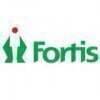Nursing Assistant
30+ Nursing Assistant Interview Questions and Answers

Asked in Apollo Hospitals

Q. What are the key responsibilities associated with nursing duties?
Nursing assistants support patients with daily activities, monitor health, and assist nurses in providing quality care.
Assisting with daily living activities, such as bathing, dressing, and grooming.
Monitoring vital signs like temperature, pulse, and blood pressure.
Helping patients with mobility, including transferring them from bed to wheelchair.
Maintaining a clean and safe environment for patients.
Documenting patient care and reporting any changes in condition to nursing st...read more

Asked in SRI SRI Holistic Hospitals

Q. What are sedation drugs?
Sedation drugs are medications used to induce relaxation, calmness, and sleepiness in patients.
Sedation drugs are commonly used in medical procedures to reduce anxiety and discomfort.
They work by depressing the central nervous system, resulting in sedation and relaxation.
Examples of sedation drugs include benzodiazepines (e.g., diazepam, lorazepam), propofol, and opioids (e.g., fentanyl).
These drugs are administered by healthcare professionals and require careful monitoring o...read more
Nursing Assistant Interview Questions and Answers for Freshers
Asked in TezTecch

Q. How do you prioritize your work?
I set priorities in my work by assessing the urgency of tasks, considering patient needs, and following established protocols.
Assess the urgency of tasks based on patient needs and care plans
Follow established protocols and guidelines for task prioritization
Communicate with team members to coordinate care and prioritize tasks efficiently

Asked in Felix Hospital

Q. What is the most detrimental policy related to bond signing?
Detrimental bond signing policies can lead to financial strain and legal issues for nursing assistants, impacting patient care.
High Financial Liability: Policies that require nursing assistants to sign bonds for large sums can create undue financial stress, potentially affecting job performance.
Lack of Support: If a bond signing policy does not provide adequate support or resources for nursing assistants, it can lead to feelings of isolation and burnout.
Unclear Terms: Policie...read more
Asked in ITM (SLS) Baroda University

Q. Are you comfortable working both day and night shifts?
I am comfortable with working day shifts, but night shifts may not be possible for me.
I am open to working day shifts
Night shifts may not be feasible for me due to personal commitments or health reasons
I can discuss potential alternatives or accommodations with the employer

Asked in SRI SRI Holistic Hospitals

Q. Which vaccine is used for newborns?
Newborns typically receive the Hepatitis B vaccine shortly after birth to protect against liver infection.
The first dose of Hepatitis B vaccine is usually given within 24 hours of birth.
This vaccine is crucial for preventing Hepatitis B virus transmission from mother to child.
The vaccine is administered intramuscularly, often in the thigh.
Follow-up doses are given at 1-2 months and 6-18 months of age.
Nursing Assistant Jobs



Asked in ITM (SLS) Baroda University

Q. Do you use an autoclave machine?
Yes, we use an autoclave machine for sterilizing medical equipment.
Yes, we use an autoclave machine to sterilize medical instruments and equipment.
Autoclave machines are essential for ensuring that all equipment is properly sterilized to prevent infections.
The autoclave machine uses steam under pressure to kill bacteria, viruses, and other microorganisms.
Regular maintenance and monitoring of autoclave machines are necessary to ensure their effectiveness.
Proper training on how...read more

Asked in Cloudnine Hospital

Q. What are the benefits of Kangaroo mother care?
Kangaroo Mother Care promotes skin-to-skin contact, enhancing bonding and improving health outcomes for premature infants.
Skin-to-Skin Contact: This method encourages direct skin contact between the mother and the baby, which helps regulate the infant's temperature.
Breastfeeding Support: Kangaroo care facilitates breastfeeding, promoting better nutrition and immune support for the baby.
Emotional Bonding: The close physical contact fosters emotional bonding between the mother ...read more
Share interview questions and help millions of jobseekers 🌟

Asked in ITM (SLS) Baroda University

Q. What was the last hospital where you worked?
I recently worked at St. Mary's Hospital in the surgical unit.
Worked at St. Mary's Hospital in the surgical unit
Assisted with post-operative care for patients
Collaborated with nurses and doctors to ensure patient comfort and safety

Asked in Dusters Total Solutions Services

Q. How do you take care of patients?
Taking care of patients involves providing physical, emotional, and psychological support while ensuring their safety and comfort.
Assess patient needs: Regularly check vital signs and report any changes to the nursing staff.
Assist with daily activities: Help patients with bathing, dressing, and eating to promote independence.
Maintain a clean environment: Ensure patient rooms are tidy and free from hazards to prevent infections.
Communicate effectively: Listen to patients' conc...read more
Asked in KDMC Hospital

Q. What is the treatment for disease control?
Treatment for disease control involves various interventions to prevent, manage, and cure diseases.
Preventive measures such as vaccination, hand hygiene, and safe food practices
Management through medications, therapies, and lifestyle modifications
Curative treatments like surgeries, chemotherapy, and radiation therapy
Disease-specific interventions like antiretroviral therapy for HIV/AIDS
Public health measures such as contact tracing and quarantine
Education and awareness progra...read more

Asked in Apollo Hospitals

Q. What does patient care entail?
Patient care involves providing compassionate, safe, and effective support to patients in various healthcare settings.
Assisting with daily activities like bathing, dressing, and eating to promote patient comfort.
Monitoring vital signs such as blood pressure and heart rate to ensure patient stability.
Administering medications as prescribed and observing for side effects.
Providing emotional support and companionship to enhance patient well-being.
Maintaining a clean and safe env...read more

Asked in GMC Nagpur

Q. What are narcotic drugs
Narcotic drugs are powerful pain-relieving medications that can cause sedation and addiction.
Narcotic drugs are also known as opioids.
They are derived from opium or synthetic substances that mimic the effects of opium.
Narcotics work by binding to opioid receptors in the brain and spinal cord to reduce pain perception.
Common examples of narcotic drugs include morphine, codeine, oxycodone, and fentanyl.
They are typically used for severe pain management, such as post-surgical pa...read more

Asked in Shalby Hospitals

Q. What is NABH?
NABH stands for National Accreditation Board for Hospitals & Healthcare Providers, ensuring quality healthcare services in India.
NABH is a constituent board of Quality Council of India (QCI).
It provides accreditation to hospitals and healthcare organizations based on quality standards.
NABH standards focus on patient safety, quality of care, and continuous improvement.
For example, a hospital accredited by NABH demonstrates adherence to best practices in patient care.
NABH also ...read more

Asked in SRI SRI Holistic Hospitals

Q. What are antiepileptic drugs
Antiepileptic drugs are medications used to treat and manage epilepsy, a neurological disorder characterized by recurrent seizures.
Antiepileptic drugs are also known as anticonvulsant drugs.
They work by suppressing abnormal electrical activity in the brain.
These drugs can help reduce the frequency and severity of seizures.
Examples of antiepileptic drugs include phenytoin, carbamazepine, valproic acid, and lamotrigine.
Asked in KDMC Hospital

Q. Why are infected people isolated?
Infective people isolation refers to the practice of separating individuals who have contagious diseases to prevent the spread of infection.
Infective people isolation is a crucial measure in healthcare settings to protect patients, staff, and visitors from acquiring infections.
Isolation precautions are implemented based on the mode of transmission of the infectious agent.
Examples of isolation precautions include airborne precautions for diseases like tuberculosis, droplet pre...read more

Asked in Cloudnine Hospital

Q. What instruments are used in the operating theater?
Instruments used in operating theaters (OT) are essential for surgical procedures, ensuring precision and safety.
Scalpel: A small knife used for incisions.
Scissors: Surgical scissors for cutting tissues.
Forceps: Tweezer-like instruments for grasping tissues.
Hemostats: Clamps used to control bleeding.
Needle holder: Used to hold needles while suturing.

Q. How do you score the Glasgow Coma Scale?
The Glasgow Coma Scale (GCS) assesses a patient's level of consciousness based on eye, verbal, and motor responses.
Eye Opening (1-4): 1 = No response, 2 = To pain, 3 = To speech, 4 = Spontaneous.
Verbal Response (1-5): 1 = No response, 2 = Incomprehensible sounds, 3 = Inappropriate words, 4 = Confused, 5 = Oriented.
Motor Response (1-6): 1 = No response, 2 = Extension to pain, 3 = Flexion to pain, 4 = Withdrawal from pain, 5 = Localizes pain, 6 = Obeys commands.
Total GCS Score:...read more
Asked in KDMC Hospital

Q. What does fieldwork in nursing entail?
Nursing field work refers to the practical experience and hands-on tasks performed by nursing professionals in various healthcare settings.
Nursing field work involves providing direct patient care, such as administering medications, taking vital signs, and assisting with daily activities.
Nursing assistants may also be responsible for documenting patient information, maintaining cleanliness and hygiene, and assisting with medical procedures.
Examples of nursing field work inclu...read more
Asked in KDMC Hospital

Q. Why is infection control important?
Infection control is crucial in healthcare settings to prevent the spread of diseases and protect patients, staff, and visitors.
Infection control measures help to reduce the risk of healthcare-associated infections.
Proper hand hygiene, including handwashing and use of hand sanitizers, is a key infection control practice.
Wearing personal protective equipment (PPE) such as gloves, masks, and gowns can prevent the transmission of pathogens.
Cleaning and disinfecting surfaces and ...read more

Q. Which injection inserts into the ID?
The injection that inserts into the ID (intradermal) is the intradermal injection, commonly used for allergy tests and vaccinations.
Intradermal injections are administered into the dermis, just below the epidermis.
Commonly used for allergy testing, such as the Mantoux test for tuberculosis.
Vaccines like the BCG vaccine for tuberculosis can also be given intradermally.
The needle used is typically a 25-27 gauge, and the injection site is often the forearm.

Asked in Ankura Hospital

Q. All emergency code allowance
Emergency code allowances refer to specific protocols and procedures followed during various emergency situations in a healthcare setting.
Emergency code allowances are predetermined protocols that guide healthcare staff on how to respond during emergencies.
Examples of emergency codes include Code Blue for cardiac arrest, Code Red for fire, and Code Gray for combative or violent patients.
Healthcare facilities have specific policies in place for each type of emergency code to e...read more

Asked in AGS Health

Q. Anatomy and physiology of human body.
Anatomy and physiology explore the structure and function of the human body, essential for understanding health and disease.
Anatomy studies body structures, e.g., heart, lungs, and bones.
Physiology examines how these structures function, e.g., how the heart pumps blood.
Major systems include the circulatory, respiratory, and nervous systems.
Cells are the basic unit of life, forming tissues and organs.
Homeostasis is the body's ability to maintain stable internal conditions.

Q. What are some common emergency medicines, and what are their uses?
Emergency medicine involves immediate care for acute illnesses and injuries, focusing on stabilization and treatment.
Common emergency medications include Epinephrine for anaphylaxis.
Nitroglycerin is used for chest pain and heart conditions.
Aspirin can be administered during a suspected heart attack.
Naloxone is used to reverse opioid overdoses.

Asked in InterGlobe Aviation

Q. What is CPR?
CPR, or Cardiopulmonary Resuscitation, is a lifesaving technique used in emergencies when someone's breathing or heartbeat has stopped.
Purpose: CPR is performed to maintain blood flow and oxygenation to vital organs until professional medical help arrives.
Steps: The basic steps include checking responsiveness, calling for emergency help, and performing chest compressions and rescue breaths.
Compression-Only CPR: For untrained bystanders, performing hands-only CPR (chest compre...read more
Asked in KDMC Hospital

Q. What character cleaning services have you provided?
Character cleanliness is important in my service.
Maintaining personal hygiene is crucial for a nursing assistant.
Washing hands regularly and wearing clean uniforms are essential.
Keeping the work area clean and sanitized is important for infection control.
Maintaining a professional appearance and demeanor is necessary.
Being punctual and organized demonstrates good character cleanliness.

Asked in AIG Hospital

Q. What is your basic knowledge of medicines?
Understanding basic medicine knowledge is essential for nursing assistants to ensure patient safety and effective care.
Know common medication types: analgesics (e.g., ibuprofen), antibiotics (e.g., amoxicillin).
Understand dosage and administration routes: oral, intravenous, topical.
Be aware of side effects and interactions: e.g., aspirin can cause stomach upset.
Recognize the importance of patient allergies and contraindications.
Familiarize with medication storage requirements...read more

Asked in Cloudnine Hospital

Q. What is an episiotomy?
An episiotomy is a surgical incision made in the perineum during childbirth to facilitate delivery and prevent tearing.
Purpose: An episiotomy is performed to enlarge the vaginal opening during delivery, especially in cases of fetal distress or prolonged labor.
Types: There are two main types of episiotomies: median (midline) and mediolateral, each with different implications for healing and recovery.
Indications: It may be indicated for large babies, breech presentations, or wh...read more

Asked in Cloudnine Hospital

Q. What is PIH?
PIH stands for Pregnancy-Induced Hypertension, a condition characterized by high blood pressure during pregnancy.
Definition: PIH is a form of high blood pressure that develops after the 20th week of pregnancy.
Symptoms: Common symptoms include headaches, swelling, and sudden weight gain.
Risks: PIH can lead to complications such as preeclampsia, which can affect both mother and baby.
Management: Regular monitoring of blood pressure and lifestyle changes are essential for managin...read more

Asked in Cloudnine Hospital

Q. What is PPH?
PPH, or postpartum hemorrhage, is excessive bleeding following childbirth, posing serious health risks to mothers.
Definition: PPH is defined as blood loss greater than 500 mL after vaginal delivery or 1000 mL after cesarean delivery.
Causes: Common causes include uterine atony (failure of the uterus to contract), retained placental tissue, and trauma during delivery.
Symptoms: Symptoms may include heavy vaginal bleeding, a drop in blood pressure, and signs of shock such as rapi...read more
Interview Questions of Similar Designations
Interview Experiences of Popular Companies






Calculate your in-hand salary
Confused about how your in-hand salary is calculated? Enter your annual salary (CTC) and get your in-hand salary


Reviews
Interviews
Salaries
Users










